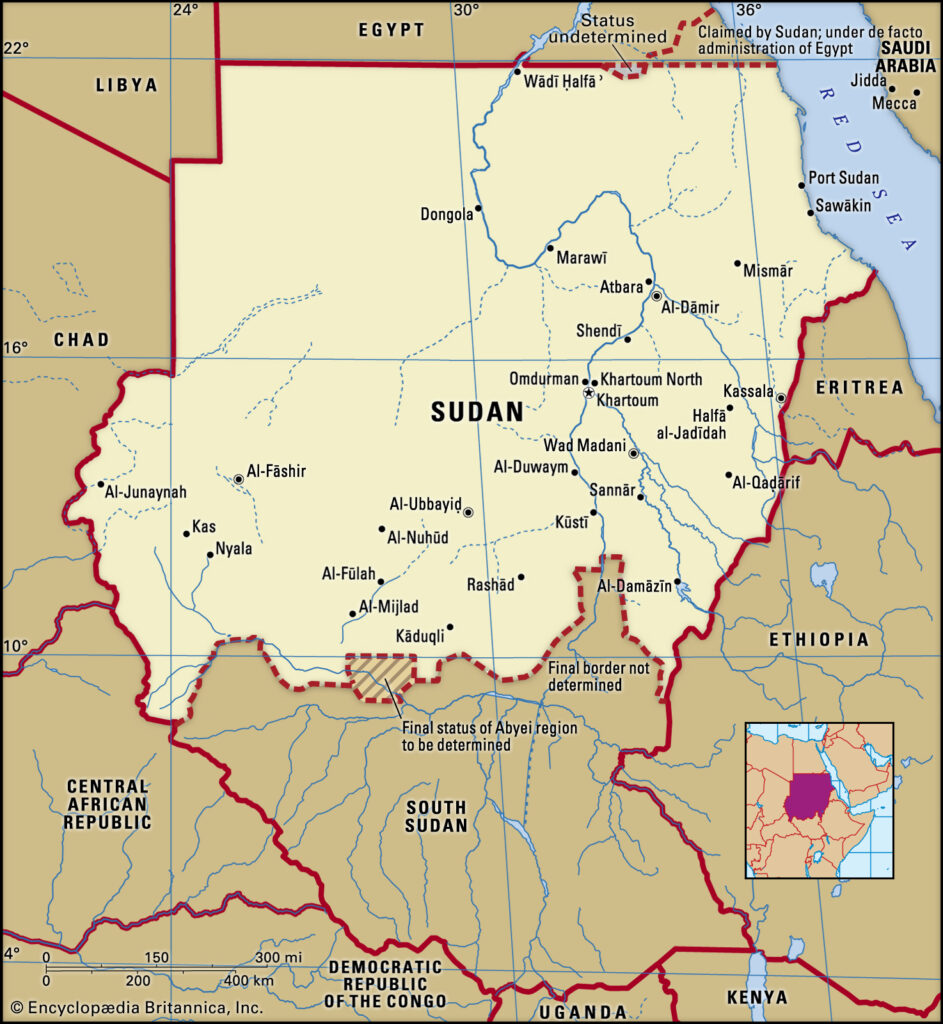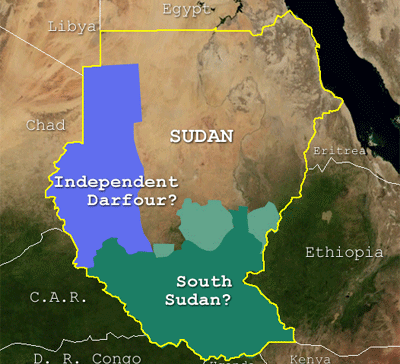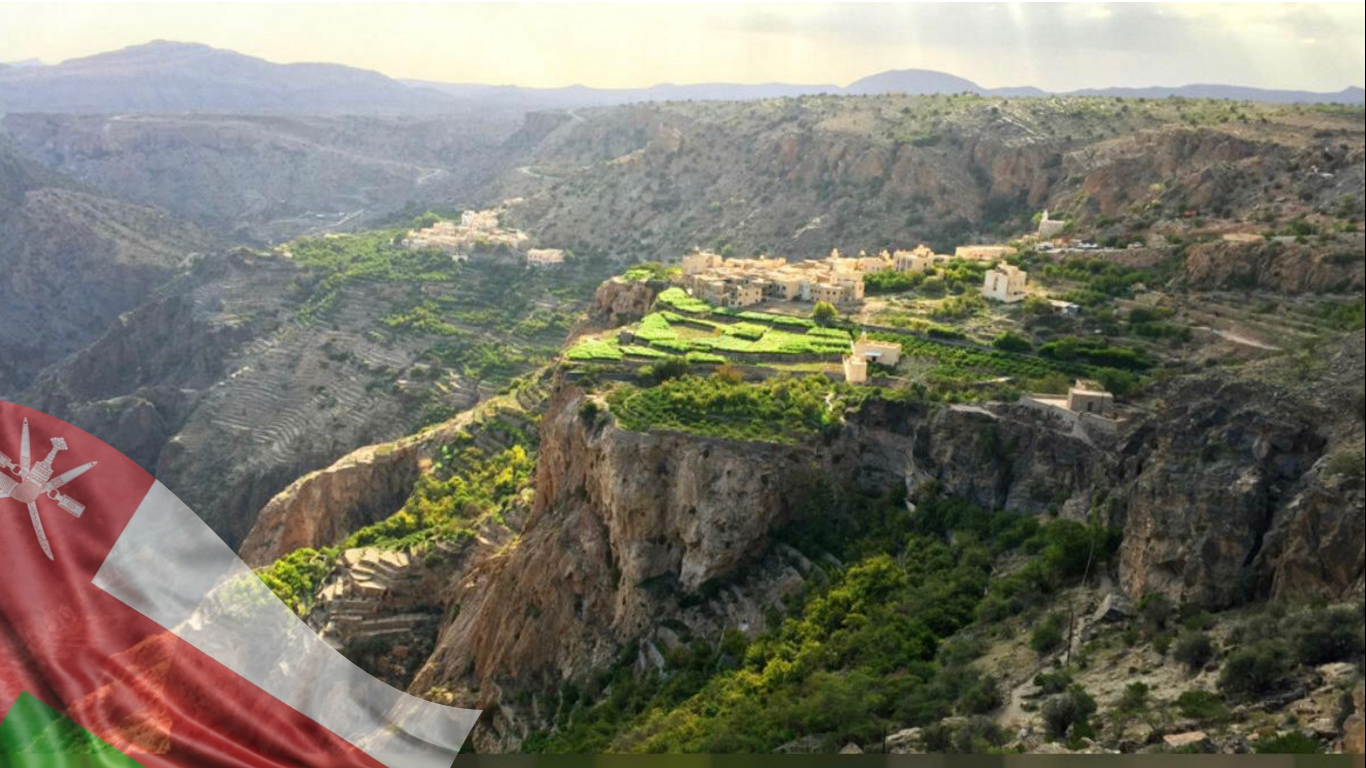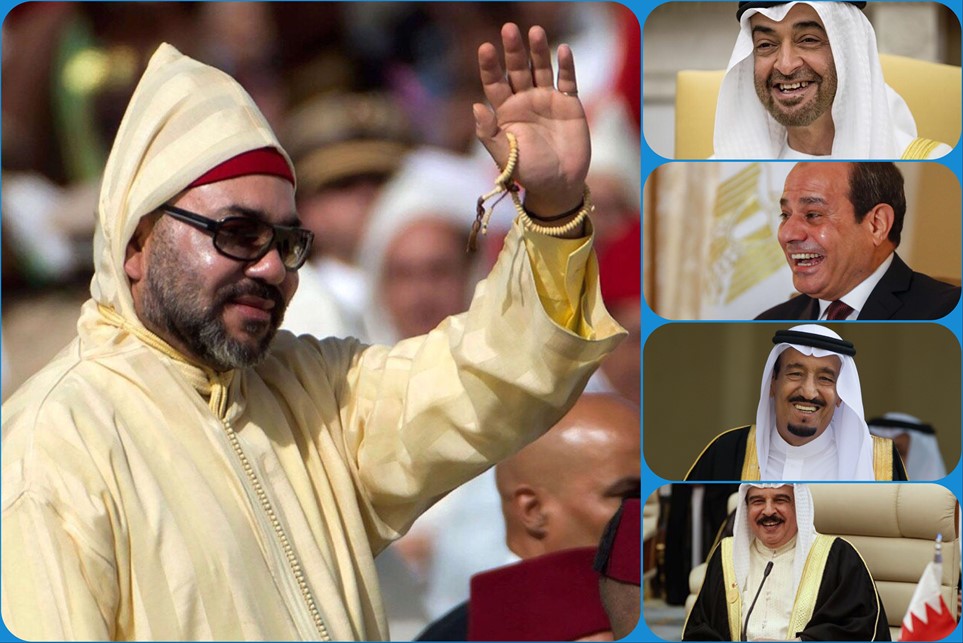Undoubtedly the biggest news of the week was Morocco’s normalization camp. A camp which by now leading Israeli officials to call an Israeli-Sunni alliance, and they don’t hide at all against whom it is aimed at. Their target is openly Iran and the camp it represents, which Tel Aviv tries hard to pull into a war before Trump leaves office in January 2021. Yet the real goal, the main purpose of the whole naturalization process is elsewhere. It not to beat Iran, which cannot be achieved anyway, but to give a pretext to this, which at the end will give a moral, political, and even economic background to finally surpass the Palestinian question. Which despite all efforts, the used brute force and the overall winning equation could not have been completely overcome so far.
The new narrative from Israeli officials and intellectuals is that it is finally time for most Arab states to recognize the real danger in the region, Iran and possibly Turkey, and to act jointly on this common threat given the interests are the same. And in the process of this great alliance, one should not get distracted by such insignificant side matters, like that of Palestine and Jerusalem. But of course, this way, exploiting the sensitivities of the Gulf and some other Arab countries the point is not to truly combat Iran, but to secure and even expand its occupation over Palestine.
The agreement with Morocco is somewhat surprising, but it was certainly in the air since the outbreak of the recent fight with the Polisario, which was on a very smaller scale since the ceasefire agreement of 1991. It might seem surprising, since Morocco is far from the supposed frontline of combatting Iran, and it seems to give a little boost to the normalization process besides yet another trophy for its architects. But the agreement is very different for Morocco. Though this is professed as a major victory, in fact, it is not only the clear acknowledgment of weakness but also made possibly irreparable damages to Morocco’s reputation, given the similarities with its newfound allies are embarrassingly obvious.
However, in the background of this and highly connected to it the realignment in the Gulf still goes on, which we touched last week. As if from a spell, the other countries boycotting Qatar suddenly woke up and hastily reacted to Riyadh’s reconciliation with Doha. And their reactions not only show how surprised they were, but also that there is no cooperation between them. As if the ship suddenly started to sink. This might seem far from the matter of Morocco, but given the same hands are working in the background, the two matters are in fact highly connected.
The race to come out on top in this major realignment is desperate and growing. Even though the signs of failure start to show. Like the struggle around Sudan, which still has many surprises.
A triumphant defeat
On 10 December Thursday came the surprise that Morocco agreed with the US to normalize relations with Israel. Thus Rabat became the fourth state to join the Arab normalization with Israel since the UAE started the process. In exchange, Washington recognized Moroccan sovereignty over Western Sahara. Though it was less circulated, but also within the deal Washington agreed to sell highly developed drones to Morocco, unmistakably to be used in the war with the Polisario.
Much of the background we recently covered when after the 1991 ceasefire the armed struggle between Morocco and the Polisario flared up once again. For Morocco Western Sahara is a matter of national dignity and upmost national interest. A matter in which it cannot compromise. And the recent deal with Washington, after the Emirates and Jordan opened consulates in Western Sahara, thus recognizing Moroccan sovereignty, seemed to win a solution. Even it needed full diplomatic relations with Israel, given the significant Jewish community in Morocco anyway seems to be a little price. Especially since Morocco is conveniently far from the main front lines of the forming new Israeli alliance.
Indeed Moroccan analysts were jubilant and many were openly celebrating the Moroccan diplomatic success. Some even called it the strongest amongst the Arabs. And it didn’t matter that some of the same exact experts upon the Emirati normalization in August called a “diplomatic foolishness” and categorically excluded any possibility of any North African involvement, or that the Emirates could play any role in this matter, as it is insignificant and has troublesome relations with Morocco. Which is ironically exactly what has just happened. But is that celebration well-founded?
It is puzzling why these mentioned experts try to use the line that the two matters, that of the normalization and the American recognition over Western Sahara are not related. Or why Moroccan Foreign Minister Būrīṭa says that “Morocco will use its relations with Israel for the sake of the Palestinians” after the Emiratis pulled the same trick and failed. And they soon gave it up.
In fact, what we see is a huge failure and on many levels. Morocco since 1975 spent huge sums and lost many of its brave soldiers for this matter. Since the ‘80s it took painstaking efforts to build a sand barrier and fend off the Polisario trying to liberate the region. The first failure against all efforts was practically admitted in 1991 when Morocco agreed to hold a referendum over the future of the area, though thus far it was claimed that it is the inalienable part of Morocco. Only that it never held this referendum. Since 2007 the idea of autonomy was raised, which a year ago became official policy. But above all, Morocco always claimed clear and overwhelming military superiority on the ground, which was allegedly growing and is now absolute. It was projected that Rabat politically, morally, militarily, and even diplomatically is in full control.
But if that is the case, why is there a need for further recognition? What does the American acknowledgment give, if that is truly Moroccan soil? Surely it adds weight behind the Moroccan claim and gives leverage in the UN negotiations, which is indeed a considerable tactical advantage. But implies that Rabat after more than four decades was still insecure.
It could be argued, as it is by the Moroccan side that while the matter was never in question, the continuous insurgency by the Polisario and the Algerian diplomatic efforts posed a problem. The American recognition will finally put an end to this. But that is not at all the case, as the Americans can not block the UN processes – only their implementation – and will do very little to stop the Polisario. The Saudis experience in Yemen is the best example, and Morocco is far less important for Washington.
The inescapable moral message is that after all the efforts Morocco rather made a deal, just to secure this land. It gave up its principles to gain land, which so far was claimed to be its own, populated by its own people.
This step will surely tarnish Morocco’s reputation in the Arab world since it leads the OIC’s al-Quds (Jerusalem) Committee, which aims to protect Jerusalem. Yet the formal recognition of Israel just did the opposite. And the comparison between the Moroccan and the Israeli cases will surely be exploited. A comparison, regardless of the significant differences, between two colonizing states fighting a war for land against its inhabitants, colonize it, disregard UN agreements and use Washington to confirm its possessions. The very implication that Morocco on its own could not solve the case and had to resort to American help, especially from Trump is a clear moral defeat. Even more so, as we shall see, that is was mostly due to Saudi and Emirati meddling.
This, however, will have little effect on the overall equation. If any, only for the positive, as it will push Algeria and Tunisia even further to the pro-Turkish, or possibly pro-Iranian camps. That is because Morocco for long is relatively secluded from the main Arab matters and has a limited role in inter-Arab relations. And when it had in the last two decades was mostly negative, like in 2012 hosting the “Friends of Syria” conference, which aimed to recognize the terrorist factions as the legitimate government of Syria. Yet with Morocco, the future pro-Israeli alliance does not gain a significant asset, as it is far from the main frontlines.
The Gulf wrestle continues
Last week we saw that Riyadh seemed ready to accept Kuwait’s mediation and reconcile with Qatar. Thus the Gulf crisis and the blockade against Qatar since 2017 come to an end. But it was surprising to see that Riyadh had little regard for its “allies”, the 3 other blockading Arab states, and made this deal for itself. Even more puzzling was, a clear sign of shock, that Egypt and the UEA for long did not even comment on the development.
It took more than a week for Egypt to react to the matter, and it only did so after it became clear that Riyadh indeed made a deal. Egyptian Foreign Minister Sāmiḥ Šukrī rushed to point out that Egypt is ready for reconciliation, but it has to comprehensive and has to respect the interests of all sides concerned. In other words, Cairo just now realized that it will be left out of the deal and if acts late it will have to make a humiliating compromise later when it already lost all leverage. At least now it can pressure its allies, especially the most trusted one, the Emirates. Yet it is clear that Cairo has a hard time to swallow the situation, as it presented its own conditions. While Qatar clearly expressed three years ago, and again a week ago that it does not accept any condition. Late as it was, at least Egypt had a clear standing.
Unlike the Emirates. It was reported that the Emirati leadership was infuriated by this development, especially after the Qatari request became known requesting to exclude the UAE from the negotiations. The first official response, however, only came on 10 December, two days after Egypt. In this State Minister for Foreign Affairs – and not Foreign Minister – Anwār Qarqāš, the real mastermind of the Emirati diplomacy praised the efforts of Kuwait and expressed his hope for success. Yet he also stressed that Egypt is a crucial part ally of the GCC and cannot be disregarded. The statement caused widespread fury by intellectuals in the Gulf. Some mocked it, while others clearly expressed that it is unacceptable.
A careful reading of this message much rather suggest that the UAE wanted to reassure Egypt that it will not be left out of the deal, but also tried to urge it not to make a separate deal and leave the Emirates alone.
The Bahraini response is even more comic since as of 11 December it still hasn’t reacted in any official capacity. Reports claim that both the Bahraini and the Emirati leadership is undecided now to proceed and try to undermine the reconciliation process in general. They are fully aware that they might just simply end up left out and then they will achieve nothing, Qatar will come out totally triumphant. But they can hardly accept the reconciliation, as now Qatar dictates the terms.
But how is that connected to Morocco? As we suggested last week, the whole Gulf reconciliation is highly connected to the normalization process on one hand, and to the internal struggle in Saudi Arabia. The Americans in the whole applied the stick and carrot policy. The Emirates, though it did not need persuasion, was won with the promise of support for the actual – but so far not legally acknowledged – leadership. Bahrain was mostly pressured, but also the same ambitious Crown Prince was found, as his Emirati and Saudi counterpart ideal for the project. Sudan was heavily – and as we shall see ineffectively – bullied into the deal. Morocco was promised a deal to solve its biggest pending problem.
The same path was chosen with Qatar. Ending the crisis is such a gift that in exchange Doha could join the normalization process. This idea, however, fails to recognize that the normalization is a mainly Emirati project, and the differences between Doha and Abū Zabī don’t allow Qatari participation. Qatar in fact benefits morally from refusing it. And blockade is not a major problem anymore. Yet with ending the crisis with Qatar certain elements on Riyadh could discredit the Crown Prince and drive a wedge between him and his Emirati mentor.
The reaction was logical. Further pushing the normalization and bringing new achievements could secure Ibn Salmān and prove the normalization, consequently the pro-Emirati policies as a winning strategy. Therefore Ibn Salmān using the already established Emirati links heavily mediated in the Moroccan deal. And it worked. The balance swung for his favor once again, as Morocco joined, while the Qatari reconciliation slowed down significantly.
It would be a mistake to disregard how closely these events followed each other. And as the struggle is not over, with the last days of Trump even more surprises can be expected. Even if overall the indications are not positive.
Where Sudan might change the game
Ever since Trump announced that Sudan is ready to join the normalizing camp we suggested that the game might not be over. And indeed, the announcement came in late October, and it took a little more than a month to see the first clear indications of backtracking. Though the ultimatum to the Americans to exempt Sudan from all sanctions – some even recently extended – came from the civilian side of the government, it was endorsed by the army as well. That is because the tension between the pro-normalization army and the civilians against it is rapidly growing. The army endorses the normalization as a toll for bigger international support and a firmer grip on the state institutions. But in a country ruled by consecutive military juntas for decades not, it needs civilian parties. Which understand the popular sentiment, the catastrophe a full normalization might cause and therefore push hard against it.
Yet this might not even matter for long. There are indications that the decision to backtrack has already been made, and all that we see is just the aftermath. A cover of justification. That is because there is a new bidder to help Sudan out of its trouble and make it a very valuable – and protected – strategic partner.
Since November there have been reports about a possible deal between Khartoum and Moscow. By this Russia would build a major naval base in the vicinity of Port Sudan, Sudan’s biggest harbor and gate to the Red Sea. Interestingly this is very close to Suwākin, where Turkey planned to build a base before the Sudanese coup. This Russian base would host some 300 to 500 troops, but more important than that it could support nuclear-propelled vessels, even submarines. On 9 December the agreement between Sudan and Russia was signed. And this is a game-changer for many reasons.

One of the main reasons for Sudan allowing itself to be bullied into the normalization was the promise of removing sanctions, economic support, and a subtly hidden guarantee that Sudan’s further fragmentation will be stopped. Sudan was ready to pay a heavy price for this on two fronts. For one, allowing Israel’s presence and monitoring to prove that Sudan is no longer a transport hub towards Palestine, which was a major issue in the past and led Israel to bomb Sudan several times. On the other hand, the Americans under the pretext of the anti-terrorist struggle wanted practically full control over the Sudanese coast and the south. Right after Khartoum agreed to the normalization, however, Washington extended the sanctions made after the war in Dārfūr. Which after the separation of South Sudan is the most worrisome matter for Khartoum.

Two weeks later President Putin authorized the building of the naval base in Sudan and a month after the extended sanctions the deal is signed. Thus America will not take over the Sudanese coast. This seems to be a fact this way. How Russia handled its relation with Syria, which has similar strategic importance, indeed made a big impression on the Middle East. While the American support for Saudi Arabia in Yemen did the same, just with the opposite result.
But would that really block the normalization between Sudan and Israel? Given that Moscow has a generally balanced relation with Tel Aviv the normalization could still go on and that does not necessarily mean a problem here. Two recent events, however, changes this perception. On 8 December an interview was made with Russia’s ambassador to Tel Aviv, in which Ambassador Anatoly Viktorov said that not Iran destabilizes the Middle East, but Israel. He even went on saying: “Israel is attacking Ḥizb Allah, Ḥizb Allah is not attacking Israel”. Tel Aviv was infuriated by the remarks, but that is not the only sign that Moscow is not a fiend of the building new alliance. Recently Moscow heavily criticized the deal with Morocco, and on its most sensitive point for Rabat. Because it rightly pointed out that the American support about Western Sahara breaches international law.
After Sudan, it might be an indication that Russia can give an alternative and the game is not over, or it might just be a gesture for Algeria. But it would be hard to miss that the Russian-Israeli relationship is far from cordial in regional matters, especially since September 2018 when Israel murdered 15 Russian soldiers in Syria.
In the case of Sudan Russia is very likely to change the game. Especially because for long Sudan was practically a Chinese economic dominion. Meaning there is both Chinese and Russian interest and power to keep Sudan on their side.
This is indeed a very bad omen for the normalization process. Further proving that betting on it, in the long run, might just not be such a winning strategy.


